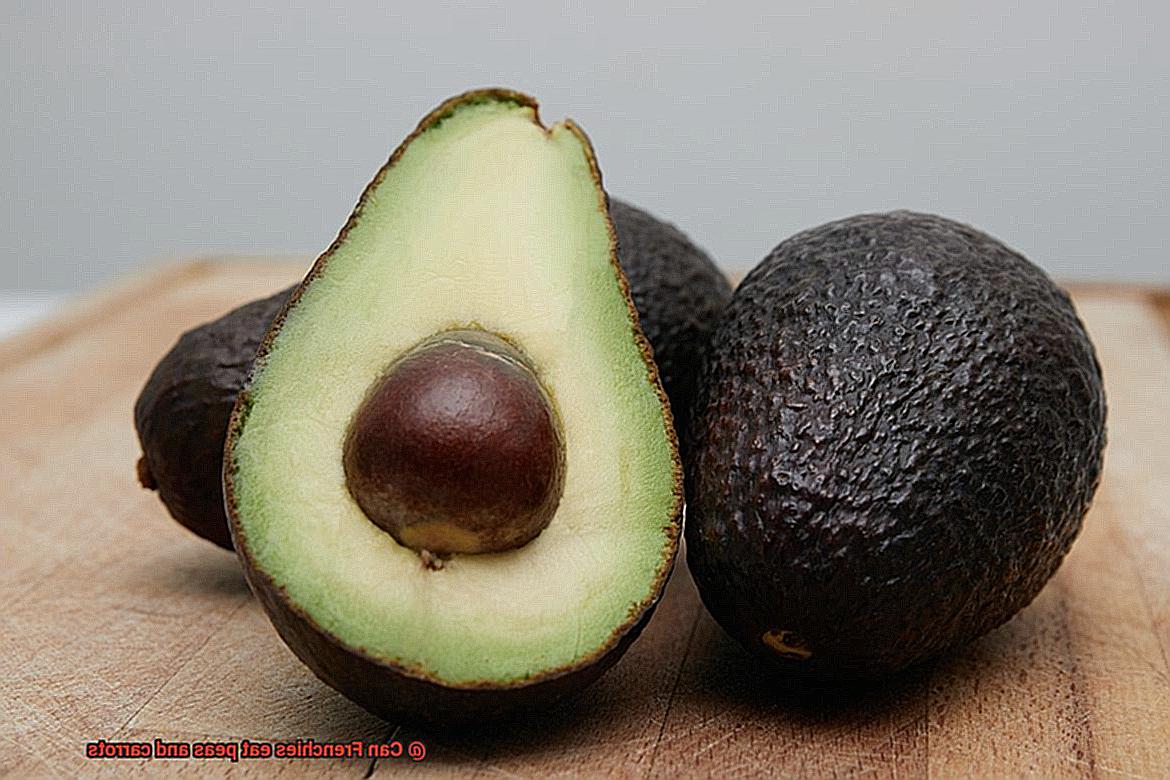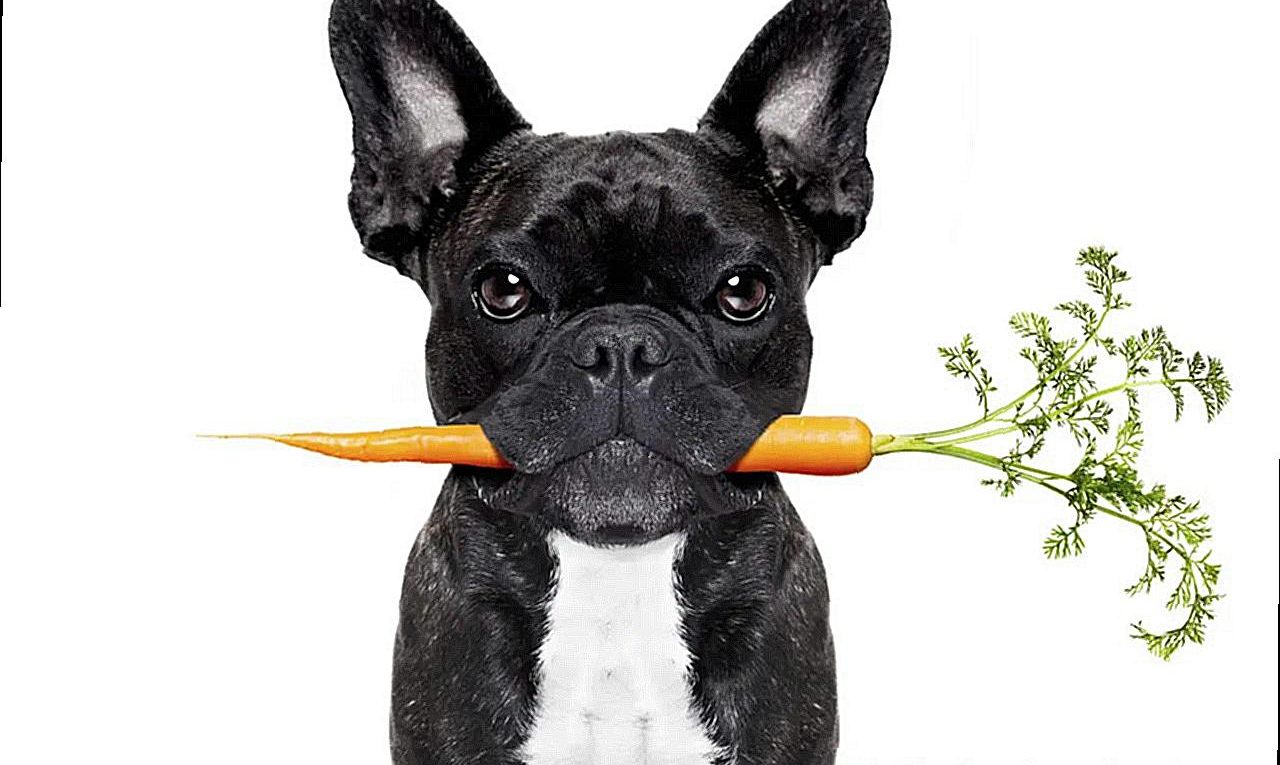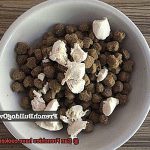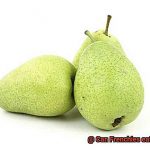Can Frenchies eat peas and carrots?
We all know that keeping our furry friends happy and healthy is a top priority. And when it comes to their chow time, we can’t help but wonder if they can join us in munching on some of our favorite veggies. So, let’s dive into the world of Frenchies and find out if those adorable little faces can handle peas and carrots like champs.
In this blog post, we’re going to dig deep into the veggie realm and explore whether peas and carrots are safe for your Frenchie’s plate. We’ll cover everything from nutritional benefits to any potential health concerns. Consider this your ultimate guide to feeding your Frenchie the right veggies – because who doesn’t want a happy tummy for their four-legged buddy? So grab a cuppa, get cozy, and let’s embark on this culinary adventure together.
Nutritional Benefits of Peas and Carrots for Frenchies
Contents
- 1 Nutritional Benefits of Peas and Carrots for Frenchies
- 2 Preparing Peas and Carrots for Frenchies
- 3 Serving Size Considerations When Feeding Frenchies Peas and Carrots
- 4 Potential Side Effects of Feeding Frenchies Too Much Peas and Carrots
- 5 What to Do if Your Frenchie Has an Upset Stomach After Eating Peas and Carrots
- 6 Alternatives to Feeding Frenchies Peas and Carrots
- 7 Consulting Your Veterinarian Before Introducing New Foods to Your Frenchie’s Diet
- 8 Conclusion
French Bulldogs are beloved companion dogs known for their playful personalities and adorable looks. As a Frenchie owner, you want to provide the best care possible, including a nutritious diet. Incorporating peas and carrots into your Frenchie’s diet can offer a range of nutritional benefits that support their overall health and well-being.
Can French Bulldogs Eat Peas and Carrots?
Absolutely. Both peas and carrots are safe for French Bulldogs to eat in moderation. These vegetables are often found in many high-quality dog food formulas and can be offered as healthy treats or added to homemade meals. However, it’s crucial to prepare them properly to ensure they are safe and easily digestible for your Frenchie.
Nutritional Benefits of Peas for French Bulldogs:
- Vitamins: Peas are rich in vitamins A, B, and K, which contribute to your Frenchie’s overall health and immune system.
- Minerals: They contain essential minerals like iron, potassium, and magnesium, supporting bone health and bodily functions.
- Fiber: Peas are an excellent source of dietary fiber, promoting healthy digestion and preventing constipation.
- Antioxidants: The antioxidants found in peas help boost your Frenchie’s immune system, protecting against chronic diseases.
Nutritional Benefits of Carrots for French Bulldogs:
- Beta-Carotene and Vitamin A: Carrots are packed with beta-carotene, which is converted into vitamin A in your Frenchie’s body. This vitamin is crucial for maintaining good vision, healthy skin, and a strong immune system.
- Vitamins C and K: Carrots also contain vitamins C and K, which contribute to overall health and well-being.
- Minerals: They provide essential minerals like potassium and calcium, supporting bone health and proper muscle function.
- Weight Management: Carrots are low in calories and high in fiber, making them a great option for weight management in French Bulldogs.
Beneficial Effects of Peas and Carrots for French Bulldogs:
- Digestive Health: The high fiber content in peas and carrots promotes proper digestion, preventing gastrointestinal issues like constipation or diarrhea.
- Immune System Support: The vitamins and antioxidants in these vegetables help strengthen your Frenchie’s immune response, reducing the risk of infections or illnesses.
- Eye Health: The vitamin A in carrots is particularly important for maintaining good eyesight in dogs, contributing to their overall well-being.
Preparing Peas and Carrots for Frenchies
French Bulldogs, known for their unique personalities and loveable nature, deserve the best when it comes to their diet. Incorporating peas and carrots into their meals can provide a range of health benefits, from essential vitamins to fiber. In this guide, we’ll explore the best ways to prepare these vegetables for your Frenchie, ensuring they are safe, nutritious, and delicious.
The Power of Peas
Peas are a fantastic addition to your Frenchie’s diet, packed with vitamins, minerals, and fiber. Here’s how to prepare them:
- Opt for fresh or frozen peas instead of canned ones. Canned peas often contain added salt and preservatives that may not be healthy for dogs.
- Boil or steam the peas until they are soft and tender. This makes them easier to digest and reduces the risk of choking.
- Allow the peas to cool down before serving them to your furry friend. This will prevent any burns or discomfort.

Carrots: Crunchy Goodness
Carrots are a nutritious choice for Frenchies, as they are low in calories and high in fiber. Follow these steps to prepare carrots for your Frenchie:
- Wash and peel the carrots to remove any dirt or pesticides that may be present on the skin.
- Carrots can be served raw or cooked. Raw carrots provide a crunchy texture that can help clean your Frenchie’s teeth, while cooked carrots are softer and easier to digest.
- If you choose to cook the carrots, steam or boil them until they are tender. Avoid adding any seasonings or spices that may be harmful to dogs.
- Cut the carrots into small, bite-sized pieces to prevent choking hazards for your Frenchie.
By following these simple steps, you can ensure that your Frenchie enjoys peas and carrots in a safe and beneficial way. Remember, a balanced diet is key to their overall health and well-being.
Serving Size Considerations When Feeding Frenchies Peas and Carrots
When it comes to feeding our furry friends, serving size is an important factor to consider. Just like humans, French Bulldogs have specific dietary needs that must be met to keep them healthy and happy. So, when it comes to feeding your Frenchie peas and carrots, it’s crucial to get the serving size right.
Why is serving size so important, you ask? Well, let’s dive into the details.
- Avoid Digestive Issues: Frenchies have sensitive stomachs, and overfeeding them peas and carrots can lead to digestive issues like gas, diarrhea, or an upset tummy. We don’t want our four-legged pals feeling uncomfortable, do we?
- Fiber Overload: While peas and carrots are packed with fiber, too much of a good thing can sometimes cause discomfort. Frenchies should not consume large amounts of these veggies as it can lead to gastrointestinal discomfort. Remember, moderation is key.
- Individual Needs: Each Frenchie is unique, so their serving size may vary based on factors like age, weight, activity level, and overall health. It’s essential to tailor the serving size to your Frenchie’s specific needs. A quick chat with your veterinarian or a canine nutritionist can help determine the best portion size for your furry friend.
Now that we know why serving size matters let’s talk numbers. The recommended serving size for French Bulldogs is approximately 10% of their daily caloric intake. To put that into perspective, if your Frenchie requires 500 calories per day, their pea and carrot portion should be around 50 calories.
But remember, it’s always best to introduce new foods gradually into your Frenchie’s diet. Start with small portions and monitor their tolerance. If your Frenchie shows any signs of discomfort or gastrointestinal distress after consuming peas and carrots, it’s time to consult with a veterinarian.
Potential Side Effects of Feeding Frenchies Too Much Peas and Carrots
The Potential Side Effects of Feeding Frenchies Too Much Peas and Carrots
French bulldogs are adorable little bundles of energy, and as their owners, we want to provide them with the best possible care. One important aspect of their care is their diet, and while peas and carrots are generally safe and nutritious for Frenchies, it’s essential to understand the potential side effects of overfeeding these vegetables.
- Gastrointestinal Issues: French bulldogs have sensitive stomachs and digestive systems, so overfeeding them peas and carrots can lead to gastrointestinal issues. Both peas and carrots are high in fiber, which can cause bloating, gas, and diarrhea if consumed in excess. It’s important to introduce new foods slowly and monitor their reactions to avoid any discomfort.
- Difficult Digestion: Peas contain a type of sugar called oligosaccharides, which can be difficult for dogs to digest. If your Frenchie consumes excessive amounts of peas, it can result in flatulence and stomach discomfort. To prevent this, it’s best to serve peas in moderation or consider steaming or pureeing them for easier digestion.
- Stool Color Changes: Carrots contain a compound called beta-carotene, which gives them their vibrant orange color. When consumed in large quantities, this compound can also give your Frenchie’s stool an orange tinge. While this is usually harmless, it’s important to keep an eye on their bowel movements for any changes.
- Weight Gain: Although peas and carrots are relatively low in calories, they still contain carbohydrates. Overfeeding these vegetables can contribute to weight gain in Frenchies, who already have a tendency to gain weight easily. It’s crucial to consider the overall calorie intake and balance it with their exercise routine to maintain a healthy weight.
To ensure the well-being of your Frenchie, it’s always a good idea to consult with a veterinarian before making any significant changes to their diet. Your veterinarian can provide personalized advice based on your Frenchie’s specific needs and any underlying health conditions.
What to Do if Your Frenchie Has an Upset Stomach After Eating Peas and Carrots
French Bulldogs, or Frenchies, are adorable and lovable companions known for their sensitive stomachs. While peas and carrots are generally safe for them to eat, some Frenchies may experience an upset stomach after consuming these vegetables. In this article, we will explore what to do if your Frenchie has an upset stomach after eating peas and carrots, providing you with practical tips and remedies to help alleviate their discomfort.
Monitor Your Frenchie’s Symptoms:
After your Frenchie eats peas and carrots, it’s important to keep a close eye on them for any signs of an upset stomach. Look out for vomiting, diarrhea, abdominal pain, bloating, or loss of appetite. If your Frenchie exhibits any of these symptoms, it’s best to temporarily withhold peas and carrots from their diet.
Try a Bland Diet:
To soothe your Frenchie’s upset stomach, you can feed them a bland diet. Boiled chicken or lean ground turkey mixed with plain white rice can provide easily digestible proteins and carbohydrates that are gentle on the stomach. Avoid adding any seasonings or spices as they may further irritate their digestive system.
Natural Remedies for Upset Stomach:
Consider giving your Frenchie some natural remedies to calm their upset stomach. Canned pumpkin, which is high in fiber, can help regulate digestion. Give about 1-2 tablespoons of canned pumpkin per 10 pounds of body weight. Another option is slippery elm bark in supplement form, known for its soothing properties and ability to reduce inflammation in the gastrointestinal tract.
Ensure Hydration:
During this time, it’s crucial to provide your Frenchie with plenty of fresh water to prevent dehydration. Dehydration can worsen the symptoms of an upset stomach. Encourage your Frenchie to drink water regularly, but if they continue to vomit or have severe diarrhea, contact your veterinarian for further guidance.
Avoid Treats and Table Scraps:
While waiting for your Frenchie’s stomach to settle, it’s recommended to avoid feeding them any treats or table scraps. Stick to the bland diet and gradually reintroduce their regular food once their stomach has settled. This will help prevent any further digestive issues.
Alternatives to Feeding Frenchies Peas and Carrots
French Bulldogs, those adorable little snorters, can be quite sensitive when it comes to their diet. While peas and carrots are often included in commercial dog foods, some Frenchies may experience digestive issues or allergies when consuming these ingredients. Fear not, Frenchie lovers. We’ve got you covered with a list of delicious and nutritious alternatives that will keep your furry friend satisfied and healthy.
Green Beans – A Fiber-Filled Delight:
Green beans are a fantastic alternative to peas and carrots for French Bulldogs. They are low in calories and high in fiber, making them an excellent choice for weight management and a healthy digestive system. Simply steam or blanch them until tender, let them cool, and watch your Frenchie gobble them up.
Sweet Potatoes – A Vitamin-Rich Treat:
Rich in vitamins A, C, and B6, as well as fiber, sweet potatoes are a tasty and nutritious alternative to peas and carrots. You can cook and mash them or serve small chunks as an irresistible treat for your Frenchie. It’s like giving them a little piece of heaven.
Broccoli – Nutrient-Packed Goodness:
Broccoli is another vegetable that can be offered to your Frenchie as a healthy alternative. Bursting with nutrients like vitamin C, vitamin K, and fiber, broccoli provides a range of health benefits. However, remember to feed it in moderation to avoid gas or bloating.
Spinach – Popeye’s Favorite Green:
Spinach is an excellent addition to your Frenchie’s diet as an alternative to peas and carrots. It’s packed with iron, calcium, vitamins A, and K – all essential for your pup’s well-being. Just make sure to cook the spinach before feeding it to your Frenchie to remove any potential toxins.
Zucchini, Pumpkin, and Cucumber – Variety is the Spice of Life:
Expand your Frenchie’s veggie repertoire by introducing zucchini, pumpkin, and cucumber into their diet. These vegetables provide added nutrients and variety to keep your pup interested in their meals. Just ensure that they are cooked and prepared in a way that is safe for your furry friend.
Consulting Your Veterinarian Before Introducing New Foods to Your Frenchie’s Diet
French Bulldogs, with their unique dietary needs and sensitivities, require special attention when it comes to their food. To ensure your Frenchie stays healthy and happy, it is essential to consult a veterinarian before introducing any new foods into their diet. In this article, we will discuss the importance of seeking professional guidance, provide insights into safe food options for Frenchies, and offer tips on how to introduce new foods gradually.
Why Consult a Veterinarian?
- Unique Dietary Needs: Frenchies have specific dietary requirements that may differ from other dog breeds. Consulting a veterinarian ensures that you receive personalized recommendations based on your Frenchie’s age, weight, activity level, and existing health conditions.
- Health Assessment: Your veterinarian will assess your Frenchie’s overall health and provide expert advice on what foods are safe and appropriate for them. They can help identify any specific dietary restrictions or allergies your Frenchie might have.
Safe Food Options:
- Peas and Carrots: These vegetables are generally safe for dogs, including Frenchies. They are low in calories and packed with essential vitamins and minerals. However, it is crucial to consider individual sensitivities or allergies of your Frenchie.
- Green Beans: Fiber-filled green beans are a nutritious alternative to peas and carrots. They aid in digestion and promote a healthy weight management for your Frenchie.
- Sweet Potatoes: Rich in vitamins A and C, sweet potatoes provide a tasty and nutrient-packed addition to your Frenchie’s diet. They are also a great source of dietary fiber.
- Broccoli: This cruciferous vegetable is loaded with vitamins K and C, as well as fiber. However, it should be given in moderation due to its potential gas-inducing properties.
Tips for Introducing New Foods:
- Start Small: Begin by offering small quantities of the new food and gradually increase the portion size over time. This allows your Frenchie’s digestive system to adjust.
- Monitor for Adverse Reactions: Keep a close eye on your Frenchie for any signs of digestive issues, such as diarrhea or vomiting. If any adverse reactions occur, discontinue the new food and consult your veterinarian.
- Preparation Methods: When preparing peas, carrots, or any other vegetables for your Frenchie, avoid seasoning them with salt, spices, or butter. Opt for steaming or boiling until soft, as this is a safe and healthy preparation method.
WYHEgPY4UJo” >
Conclusion
In conclusion, the answer is a resounding yes – Frenchies can absolutely indulge in the delightful combination of peas and carrots. These vibrant vegetables offer a cornucopia of nutritional goodness for our furry companions, boasting an array of vitamins, minerals, fiber, and antioxidants. Peas themselves are brimming with vitamins A, B, and K, as well as essential minerals such as iron and potassium. Carrots, on the other hand, are bursting with beta-carotene that converts into vitamin A within their adorable bodies, alongside a healthy dose of vitamins C and K.
Now, when it comes to serving up this delectable duo to your Frenchie friend, it’s crucial to do so with finesse. Opt for fresh or frozen peas rather than their canned counterparts to avoid any unwanted additives like salt or preservatives. To achieve perfect tenderness and preserve all those precious nutrients, gently boil or steam these veggies before allowing them to cool down gracefully.
Remember: moderation is key when it comes to portion size. Overindulging in these scrumptious greens could potentially lead to digestive woes or unwanted weight gain in our beloved French Bulldogs. So aim for a serving size that accounts for approximately 10% of their daily caloric intake – just enough to satisfy their taste buds without tipping the scale.
While peas and carrots generally play nice with Frenchies’ tummies, it’s important to remain vigilant about potential side effects from excessive consumption. Keep an eye out for gastrointestinal disturbances or difficulties digesting due to the sugar content in peas. Don’t be alarmed if you notice some colorful changes in their stool either; that’s just the beta-carotene from carrots doing its thing. And of course, watch out for any sneaky weight gain creeping up on your four-legged companion.
Should your Frenchie experience any tummy troubles after indulging in peas and carrots galore, keep a close watch on their symptoms. Consider offering them a gentle diet of boiled chicken or lean ground turkey mixed with plain white rice to ease their discomfort. And for those looking for natural remedies, canned pumpkin or slippery elm bark can work wonders in soothing their delicate stomachs.
Of course, if your Frenchie has any allergies or sensitivities, or if you simply have concerns about introducing new foods into their diet, it’s always wise to consult with a trusted veterinarian. These experts can provide personalized advice tailored to your Frenchie’s unique needs, ensuring their continued well-being and happiness.




